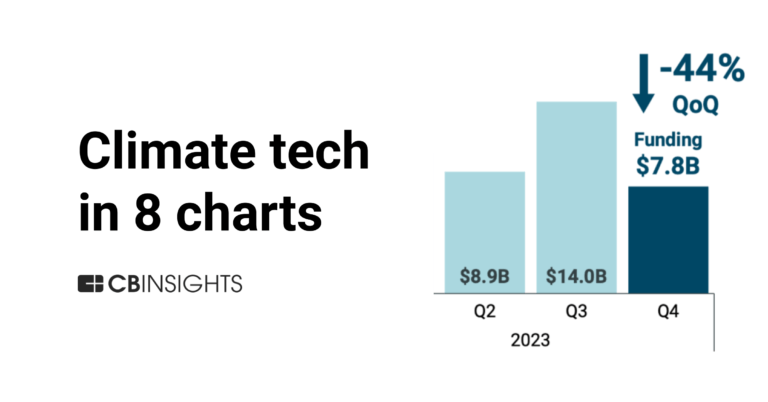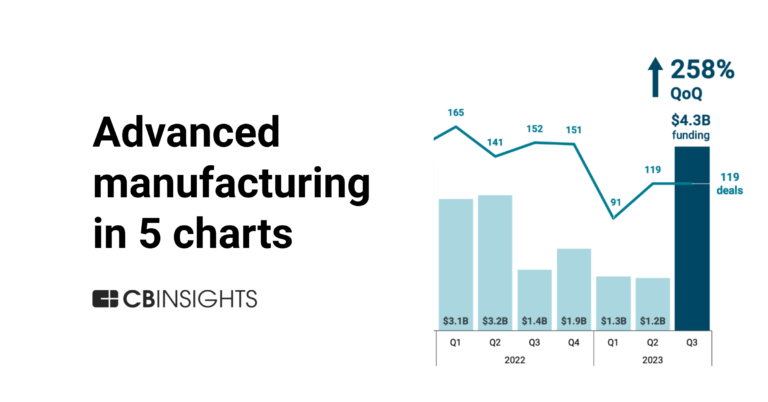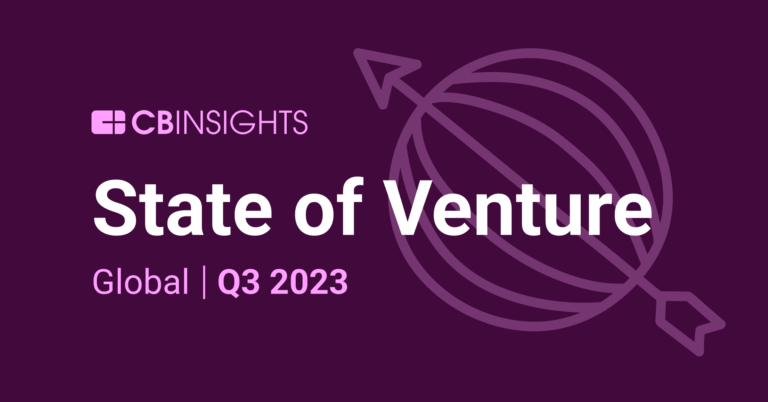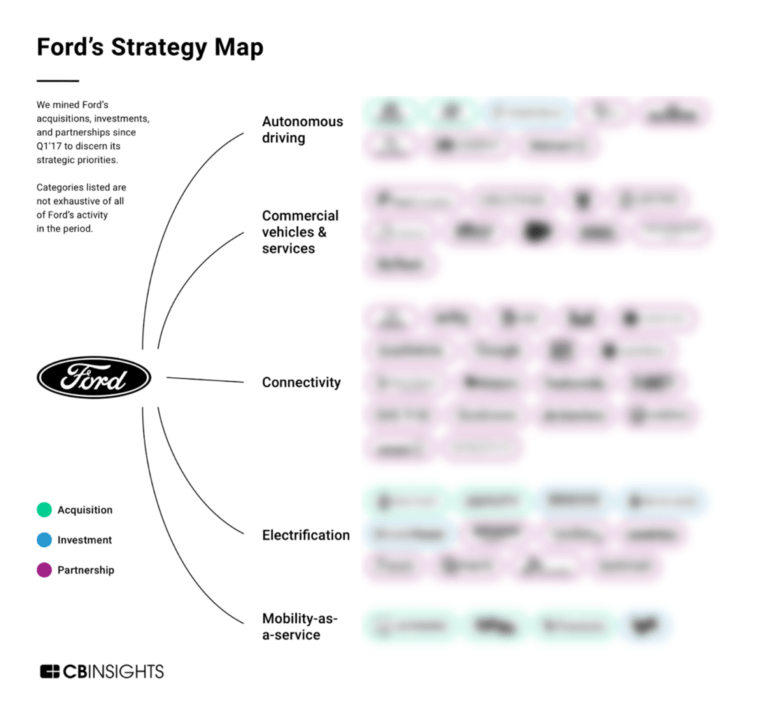
Redwood Materials
Founded Year
2017Stage
Series D | AliveTotal Raised
$3.991BValuation
$0000Last Raised
$1B | 2 yrs agoMosaic Score The Mosaic Score is an algorithm that measures the overall financial health and market potential of private companies.
-24 points in the past 30 days
About Redwood Materials
Redwood Materials specializes in creating a sustainable circular supply chain for lithium-ion batteries within the recycling and manufacturing industry. The company's main services include recycling used batteries, refining metals through hydrometallurgical processes, and remanufacturing anode and cathode components for new batteries. Redwood Materials primarily serves the battery manufacturing sector, providing domestically sourced materials to U.S. cell manufacturers. It was founded in 2017 and is based in Carson City, Nevada.
Loading...
ESPs containing Redwood Materials
The ESP matrix leverages data and analyst insight to identify and rank leading companies in a given technology landscape.
The electric vehicle (EV) battery recycling market is focused on safely and responsibly recycling used lithium-ion batteries and manufacturing scrap, while also providing a sustainable source of critical battery materials. The market aims to close the loop for the lithium-ion supply chain by recovering critical battery elements from end-of-life batteries or scrap and using them to make new cathode…
Redwood Materials named as Leader among 14 other companies, including ExxonMobil, Contemporary Amperex Technology, and Umicore.
Loading...
Research containing Redwood Materials
Get data-driven expert analysis from the CB Insights Intelligence Unit.
CB Insights Intelligence Analysts have mentioned Redwood Materials in 4 CB Insights research briefs, most recently on Mar 12, 2024.

Mar 12, 2024
Climate tech in 8 charts: 2023
Nov 9, 2023
Advanced manufacturing in 5 charts: Q3’23
Oct 12, 2023 report
State of Venture Q3’23 ReportExpert Collections containing Redwood Materials
Expert Collections are analyst-curated lists that highlight the companies you need to know in the most important technology spaces.
Redwood Materials is included in 5 Expert Collections, including Auto Tech.
Auto Tech
3,977 items
Companies working on automotive technology, which includes vehicle connectivity, autonomous driving technology, and electric vehicle technology. This includes EV manufacturers, autonomous driving developers, and companies supporting the rise of the software-defined vehicles.
Unicorns- Billion Dollar Startups
1,257 items
Energy Storage
5,352 items
Companies in the Energy Storage space, including those developing and manufacturing energy storage solutions such as lithium-ion batteries, solid-state batteries, and related software for battery management.
Advanced Manufacturing
4,032 items
Companies in the advanced manufacturing tech space, including companies focusing on technologies across R&D, mass production, or sustainability
Advanced Manufacturing 50
50 items
Redwood Materials Patents
Redwood Materials has filed 13 patents.
The 3 most popular patent topics include:
- electric vehicle battery manufacturers
- rechargeable batteries
- battery electric cars

Application Date | Grant Date | Title | Related Topics | Status |
|---|---|---|---|---|
8/21/2023 | 12/3/2024 | Battery electric vehicle manufacturers, Rechargeable batteries, Battery (electricity), Electric vehicle battery manufacturers, Automotive technologies | Grant |
Application Date | 8/21/2023 |
|---|---|
Grant Date | 12/3/2024 |
Title | |
Related Topics | Battery electric vehicle manufacturers, Rechargeable batteries, Battery (electricity), Electric vehicle battery manufacturers, Automotive technologies |
Status | Grant |
Latest Redwood Materials News
Jan 8, 2025
By siliconindia | Wednesday, 08 January 2025, 05:17 Hrs With the rising change towards sustainable transportation, the demand for lithium-ion batteries, critical for powering devices from smartphones to electric vehicles (EVs), has flowed significantly. The fast development of the EV industry, with global electric car production increasing fivefold in recent years, presents major challenges as critical raw materials like cobalt, nickel, and manganese become harder to obtain and their mining results in significant environmental harm. Battery recycling has become vital for recovering materials, reducing reliance on mining, and minimizing environmental impact. It supports a circular economy, conserves resources, and ensures the sustainability of greener energy solutions, fostering a cleaner future. Let's have a look at how battery recycling fuels the growth of EV In reality, lithium-ion batteries power EVs and last about 8 to 15 years. Growing demand is already emerging as the pace of expansion for the EV industry continues to expand, spurred on by the momentum of a new direction toward more sustainable transportation. In 2020, electric cars took the global market to 10 million units, and as this increase is seen in the future, the quantity of used batteries is likely to multiply multifold by 2040, with an estimated 7.8 million tonnes of used battery annually. Any mishandling of these batteries can lead to severe environmental hazards as they contain toxic materials and may cause outbreaks of fire. Battery recycling boasts numerous environmental and financial benefits, where raw material exploitation is reduced at minimum, accompanied by the impact of mining dangerous critical materials. It is proven that recycled lithium batteries can provide an estimated 95% of necessary new battery manufacturing. In doing so, further, it averts the poisoning of the very earth with chemical hazards. The battery recycling market is anticipated to reach $11.83 billion by 2030 with a compound annual growth rate of 5.3%. Rahul Shonak, COO of Nexzu Mobility, says, "EVs are the future when it comes to a sustainable mobility solution. The current mobility model is one that has a drastic impact on the environment, and it is only logical to adopt innovations that not only take care of mobility requirements but also environmental concerns". Battery Recycling with New Technologies Recent developments in battery recycling technologies have transformed the process, making it cheaper and more efficient. Two primary methods are widely used for recycling lithium-ion batteries: Pyrometallurgical Recycling: High-temperature processing to extract metals, which is now being refined for greater efficiency and reduced pollution. Hydrometallurgical recycling: A low-temperature, aqueous process with higher recovery rates and a lower environmental impact. New technologies include direct recycling that allows the complete recovery of the whole battery components without breaking them, promising both savings in costs and better quality materials, therefore better sustainability. The Difficulties in Lithium-Ion Battery Recycling Anirban Banerjee, Senior VP & SBU Head - Batteries & Flashlights, Eveready Industries India, says , “To reduce the burden of battery waste, manufacturers are required to follow a sustainable approach and contribute to building a circular economy. By coming-up with efficient products with extended lifespans, minimizing waste, promoting energy efficiency, and adopting safe waste disposal & collection can bring significant results. It is also crucial to link the consumer with the sustainability cause”. With the growing demand for lithium-ion batteries , decarbonization initiatives for sectors like automotive and energy are worth several billions of dollars. Recycling challenges are one of the most significant barriers towards widespread adoption and one of the most significant challenges that must be faced by LIB-dependent industries. LIB recycling would largely remain unsustainable unless properly developed technologies are handled with sufficient logistics, and regulatory challenges stand in the way. Currently, the recycling process is more or less based on the extraction of valuable cathode materials. However, to achieve maximum profitability and minimum environmental impact, solutions for recycling anodes, electrolytes, and current collectors must also be considered. Although traditional recycling techniques for spent LIBs are relatively mature, the profitability of these methods remains low, calling for an upgrade to current recycling models. Advanced approaches such as direct recycling where whole components like cathodes are recycled without being broken down hold much promise. This technique could improve the quality of recycled materials and reduce costs. In addition, spent EV batteries could be repurposed for lower-power applications, such as home energy storage or grid systems, for batteries that are no longer suitable for their original purposes. However, technical barriers such as inability to assess the state of health (SoH) of spent batteries and market barriers including consumer acceptance and regulatory complexities act as barriers for cascade utilization. Overcoming these challenges requires breakthroughs in technologies such as accurate SoH prediction, simplified screening processes, and machine learning-based sorting to make cascade utilization and recycling more economically feasible. Robust legislative frameworks are also required to streamline the recycling process, ensuring safety and environmental protection. If these obstacles are addressed, a closed-loop recycling system for LIBs could emerge, promoting both environmental sustainability and economic growth within the expanding EV industry. Case Studies of Closed-Loop Battery Recycling in Waste Management Closed-loop battery recycling is an essential approach to waste management, especially in lithium-ion batteries (LIBs) applied in electric vehicles (EVs) . This involves taking the extracted material from the used battery and returning it into the production chain so that less extraction of raw materials is done, hence the less impact on the environment. Redwood Materials Redwood Materials, founded by former Tesla CTO JB Straubel, uses a closed-loop recycling process with up to 95% recovery of critical minerals from EV batteries. Partnering with automakers like BMW, it recovers cathodes and anodes for reuse in new batteries, supporting a circular economy and reducing mining dependence. Cylib European Recycling Plant German start-up Cylib, funded by Porsche and Bosch, is building a battery recycling plant in Dormagen, Germany. It will come on stream in 2026 to process 30,000 tons of end-of-life batteries. This should support the German circular value chain and help the EU secure strategic mineral supplies, making the continent less reliant on others for them. Nunam India Repurposing Initiative Repurposing retired electric vehicle batteries by Nunam will provide power back-up solutions in rural communities, using refurbished packs to ensure no interruptions in house-to-house energy supply, with a resultant lift in livelihood opportunities and sustainable ways of energy delivery. This action will not only help in issues of waste but also contribute significantly to the Indian clean energy shift. Looking Ahead The increasing use of batteries in electronics , electric vehicles, and renewable energy has made the Battery Waste Management (Amendment) Rules, 2024 strengthen Extended Producer Responsibility (EPR), making recycling efforts more accountable and pushing towards a circular economy. EPR certificates and environmental compensation are being introduced to make producers comply. Moving forward, authorities will emphasize supporting policies, benefits for manufacturers as well as the consumers, along with investments made in research toward improving recycling systems and helping protect the environment.
Redwood Materials Frequently Asked Questions (FAQ)
When was Redwood Materials founded?
Redwood Materials was founded in 2017.
Where is Redwood Materials's headquarters?
Redwood Materials's headquarters is located at 2801 Lockheed Way, Carson City.
What is Redwood Materials's latest funding round?
Redwood Materials's latest funding round is Series D.
How much did Redwood Materials raise?
Redwood Materials raised a total of $3.991B.
Who are the investors of Redwood Materials?
Investors of Redwood Materials include Capricorn Investment Group, T. Rowe Price, Deepwater Asset Management, OMERS Infrastructure, Microsoft Climate Innovation Fund and 14 more.
Who are Redwood Materials's competitors?
Competitors of Redwood Materials include tozero and 7 more.
Loading...
Compare Redwood Materials to Competitors

Ascend Elements specializes in the production of advanced battery materials for the lithium-ion battery industry. The company offers a patented Hydro-to-Cathode process that recycles spent lithium-ion batteries into high-value materials for use in new electric vehicle (EV) batteries, enhancing sustainability within the industry. It primarily serves electric vehicle battery manufacturers and cathode manufacturers. Ascend Elements was formerly known as Battery Resourcers. The company was founded in 2015 and is based in Westborough, Massachusetts.

Green Li-Ion is a lithium-ion battery recycling technology company that focuses on producing modular hardware solutions for the battery recycling sector. The company's main offerings include converting spent batteries into cathode and anode materials that are ready for integration into the manufacturing processes of various types of batteries. It was founded in 2020 and is based in Singapore.
Redivivus specializes in lithium-ion battery recycling, focusing on logistics and material recovery in the recycling industry. The company offers services that include neutralizing battery hazards, cryogenic freezing, shredding, and safe transportation of battery materials for recycling. Redivivus targets the recycling challenges faced by various sectors, providing solutions to safely and efficiently handle end-of-life batteries. It was founded in 2020 and is based in Colorado Springs, Colorado.
tozero recycles lithium-ion batteries within the environmental sustainability sector. The company recovers materials such as lithium, nickel, cobalt, manganese, and graphite from batteries and reintroduces materials into the supply chain. tozero serves emobility firms, electronic waste recyclers, battery manufacturers, and second-life battery firms. It was founded in 2022 and is based in Munich, Germany.

Princeton NuEnergy specializes in the recycling of lithium-ion batteries within the clean-technology industry. The company utilizes a process for rejuvenating cathode and anode materials from spent batteries, aiming to produce materials with a reduced environmental impact. Princeton NuEnergy's technology differs from traditional battery recycling methods. It was founded in 2019 and is based in Bordentown, New Jersey.
Battery Pollution Technologies specializes in creating a circular economy for the lithium-ion battery sector. The company offers services such as recycling of lithium-ion batteries, maximizing the recovery and reprocessing of critical battery minerals, and repurposing batteries for second-life applications. Battery Pollution Technologies primarily serves sectors that require battery recycling and repurposing, including the electric vehicle industry and energy storage solutions. Battery Pollution Technologies was formerly known as Battery Pollution. It was founded in 2021 and is based in Sydney, New South Wales.
Loading...
